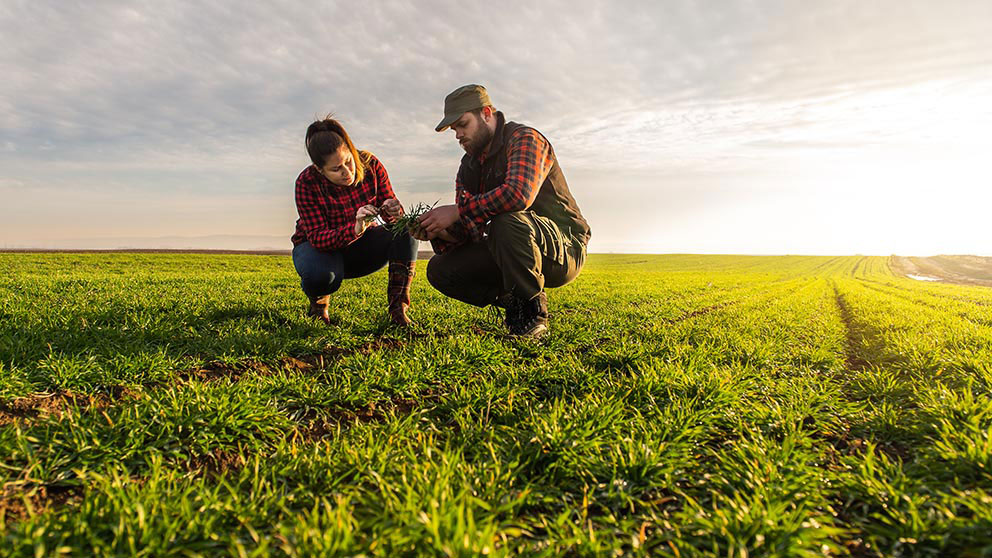Seeking mental health support? How to find the right counsellor

In any given year, one in five Canadians will personally experience a mental health problem or illness, according to the Canadian Mental Health Association.
Finding a counsellor to help manage our mental health — even a mental health check-up — can help provide us with clarity, figure out a path to problem-solving, help overcome life challenges and provide a boost in morale when we need it the most. Yet, a Google search alone won’t find you the right counsellor.
Figure out our goals
In taking the first step to finding a counsellor, determine what you hope to accomplish.
In taking the first step to finding a counsellor, determine what you hope to accomplish.
“Sometimes, people attend therapy, thinking that the therapist can change other people in your life or can make the changes for you. We can't,” says Lauren Van Ewyk, a social worker and mental health advocate in the agriculture sector and owner of Wellspring Counseling Services. “Therapy is a partnership of sorts, but the client is always steering that ship.”
Ask about qualifications
When it comes to choosing suitable therapists, Van Ewyk suggests first checking for appropriate qualifications. She generally recommends a masters-level registered social worker, psychotherapist or psychologist, but notes insurers’ requirements can differ, so it’s important to check your policy to ensure you’re covered.
“I would also recommend that you ensure they have at least three years experience, and, if possible, with a variety of issues,” Van Ewyk says.
No insurance? Ask the counsellor about their hourly rate and decide if that fits your budget. You can always try someone else.
Find your comfort zone
Feeling at ease with a counsellor is also vital.
Ask yourself if it would help to have another person attend a session with you or if a virtual session would be preferable to an in-person meeting.
“I would recommend that every individual try chatting with a therapist, even if it is just to see what it is like,” Van Ewyk adds.
And if you find treatment unhelpful or you just don’t warm up to the counsellor, don’t be afraid to try and find someone else.
“In general, good therapists are not the least bit offended if you choose another therapist. Ideally, the goal is to find the fit that helps you use the strengths and gifts you have so you can thrive,” says Van Ewyk.
Get the right fit
Finding that fit also requires defining any personal deal-breakers. For example:
A woman may not click with a male counsellor or the other way around
A first-generation Canadian farmer from a strict upbringing may seek someone of a similar upbringing
A farm kid from a small rural community struggling with their identity may want someone who has gone through the same journey
Determine the “must-haves” for your counsellor, such as shared life experiences, since speaking to someone who has gone through what you’re going through can be helpful and comforting.
Ask your potential counsellor who they like to work with to get a sense of their background and experiences. It all goes to building trust.
“It is very important that you feel safe in the relationship, so if seeing someone that is not experienced in the manner would make you feel less safe, it is appropriate to voice those concerns,” Van Ewyk says.
Understanding agriculture
For farmers, Van Ewyk says a critical piece of an effective relationship with a counsellor is understanding agriculture experiences.
“I worked with clients before who lost their family farm, and the therapist told the individual that it was no big deal, that the individual just needed to save up some money and buy a different, smaller farm,” Van Ewyk says. “That’s so unhelpful for the client.”
Getting help
The Do More Agriculture Foundation has a list of mental health professionals with agriculture experience.
And after finding an inadequate number of counsellors to serve the demands of all producers needing help, co-developed a program with Van Ewyk called AgCulture, a mental health literacy course aimed at educating mental health professionals — who may never have even set foot on a farm — about the stressors that farmers face.
“In addition to basic agriculture literacy, the course also speaks to developing a therapeutic relationship with farmers,” former executive director of Do More Agriculture Adelle Stewart says.
“I am certain that this project will be a tremendous benefit to those providing services to the ag community,” adds Van Ewyk.
Bottom line
When seeking a counsellor for a mental health check-up, ask yourself a few questions.
Why are you seeking help? What are your goals? Ask your potential counsellor a few questions to find what’s right for you. What are the counsellor’s qualifications and experiences? What type of clients do they like to work with?
Exploring these will make the prospect of seeking help less intimidating and assist the counsellor as well.
Article by: Richard Kamchen

How balancing emotions and decision-making is good for the farm and your employees.
